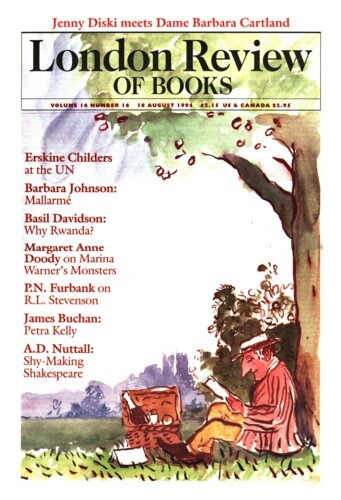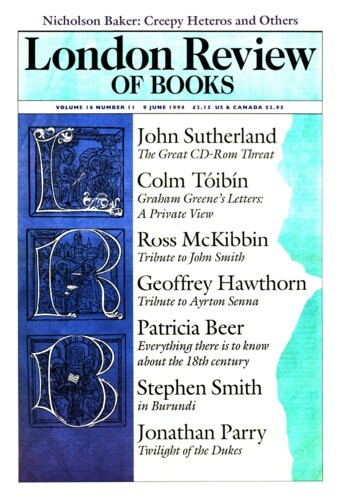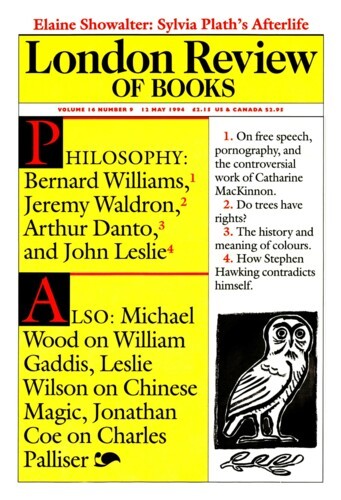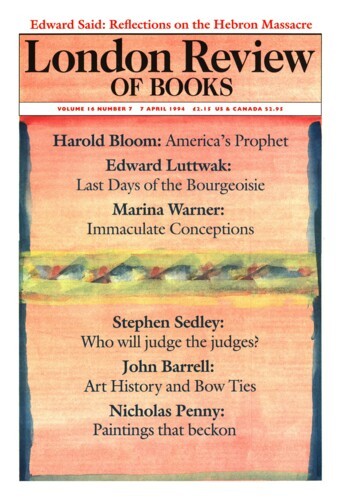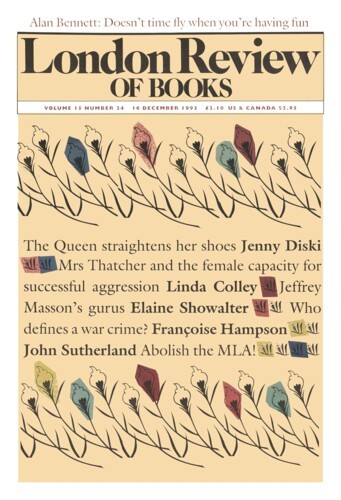Among the Picts
John Sutherland, 18 August 1994
Lewis Grassic Gibbon (the pen-name of James Leslie Mitchell) is put forward as his country’s great 20th-century novelist: the Scottish D.H. Lawrence. Gibbon’s reputation substantially rests on A Scots Quair (‘quire’ – or ‘gathering of sheets’), also called ‘The Mearns Trilogy’, Mearns being an ancient name for Kincardineshire, now itself an ancient name after the county reorganisation of 1975. This cycle of novels follows the career of a Scotswoman, Chris Guthrie, from childhood on a croft in the North-Eastern coastlands, through the disruption of the First World War and two marriages, to middle age in a soulless city, ‘Dundon’, which combines repugnant features of Aberdeen and Dundee. The first segment, Sunset Song, is regarded in Scotland as a national classic and is studied in schools and universities. Gibbon remains a blind spot for most English readers. Shamefully, he has no entry in the DNB, a distinction he yields to such maestri as Edgar Wallace and Elinor Glyn.’
